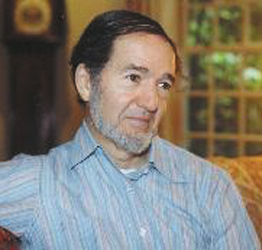 Jared Diamond
Jared Diamond
wrote: To science we owe dramatic changes in our smug self-image.
Astronomy taught us that our earth isn’t the center of the universe but
merely one of billions of heavenly bodies. From biology we learned that
we weren’t specially created by God but evolved along with millions of
other species. Now archaeology is demolishing another sacred belief:
that human history over the past million years has been a long tale of
progress. In particular, recent discoveries suggest that the adoption
of agriculture, supposedly our most decisive step toward a better life,
was in many ways a catastrophe from which we have never recovered. With
agriculture came the gross social and sexual inequality, the disease
and despotism, that curse our existence. At first, the evidence against
this revisionist interpretation will strike twentieth century Americans
as irrefutable. We’re better off in almost every respect than people of
the Middle Ages, who in turn had it easier than cavemen, who in turn
were better off than apes. Just count our advantages. We enjoy the most
abundant and varied foods, the best tools and material goods, some of
the longest and healthiest lives, in history. Most of us are safe from
starvation and predators. We get our energy from oil and machines, not
from our sweat. What neo-Luddite among us would trade his life for that
of a medieval peasant, a caveman, or an ape? … The evidence suggests
that the Indians at Dickson Mounds, like many other primitive peoples,
took up farming not by choice but from necessity in order to feed their
constantly growing numbers. “I don’t think most hunger-gatherers farmed
until they had to, and when they switched to farming they traded
quality for quantity,” says Mark Cohen of the State University of New
York at Plattsburgh, co-editor with Armelagos, of one of the seminal
books in the field, Paleopathology at the Origins of Agriculture. “When
I first started making that argument ten years ago, not many people
agreed with me. Now it’s become a respectable, albeit controversial,
side of the debate.” There are at least three sets of reasons to
explain the findings that agriculture was bad for health. First,
hunter-gatherers enjoyed a varied diet, while early farmers obtained
most of their food from one or a few starchy crops. The farmers gained
cheap calories at the cost of poor nutrition. (today just three
high-carbohydrate plants—wheat, rice, and corn—provide the bulk of the
calories consumed by the human species, yet each one is deficient in
certain vitamins or amino acids essential to life.) Second, because of
dependence on a limited number of crops, farmers ran the risk of
starvation if one crop failed. Finally, the mere fact that agriculture
encouraged people to clump together in crowded societies, many of which
then carried on trade with other crowded societies, led to the spread
of parasites and infectious disease. (Some archaeologists think it was
the crowding, rather than agriculture, that promoted disease, but this
is a chicken-and-egg argument, because crowding encourages agriculture
and vice versa.) Epidemics couldn’t take hold when populations were
scattered in small bands that constantly shifted camp. Tuberculosis and
diarrheal disease had to await the rise of farming, measles and bubonic
plague the appearnce of large cities. … At this point it’s
instructive to recall the common complaint that archaeology is a
luxury, concerned with the remote past, and offering no lessons for the
present. Archaeologists studying the rise of farming have reconstructed
a crucial stage at which we made the worst mistake in human history.
Forced to choose between limiting population or trying to increase food
production, we chose the latter and ended up with starvation, warfare,
and tyranny. (01/11/07)
more…